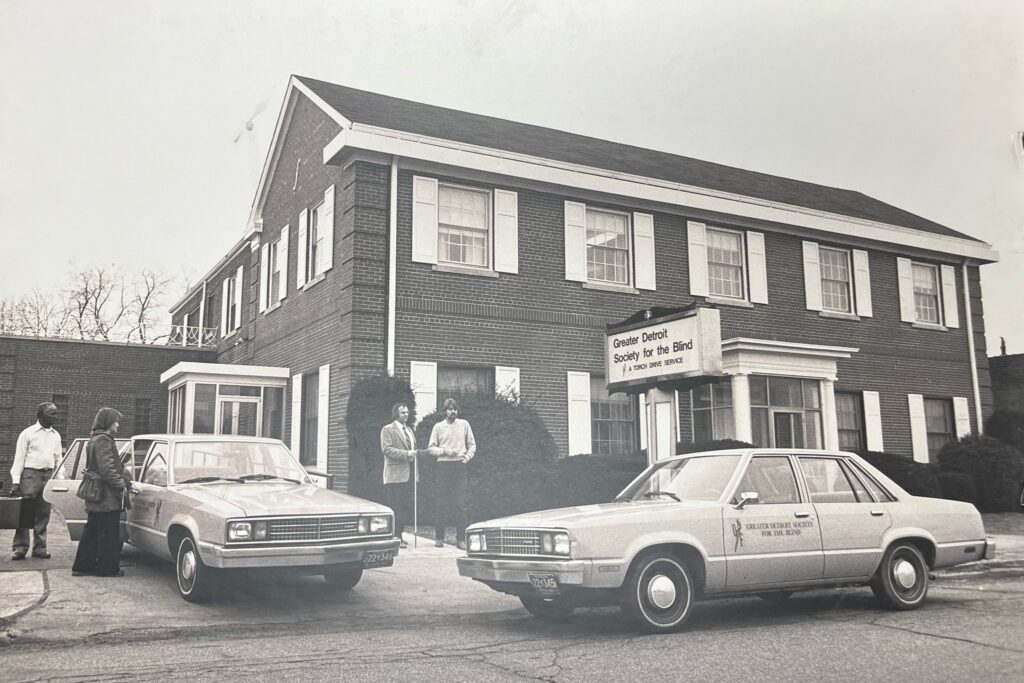Greater Detroit Agency for the Blind & Visually Impaired
26777 Central Park Blvd., Ste. 150, Southfield MI 48076
GDABVI takes a whole-person approach to sight loss by meeting people where they are in their vision journey. We provide daily living skills, technology training, orientation and mobility, support groups, case management for basic needs, information and resources, and opportunities to socialize for blind and visually impaired individuals. Our programs foster independence, safety, and overall well-being across the lifespan.
To provide services and support that help blind and visually impaired individuals live productive, independent lives with confidence and dignity.
Blind and visually impaired individuals have the tools, technologies, and therapies they need to overcome obstacles that separate them from their dreams.
Our Values:
Greater Detroit Agency for the Blind and Visually Impaired began in 1961 as a non-profit called the Metropolitan Society for the Blind to provide direct services to people in metro Detroit who were blind or visually impaired, and to provide consultation and staff training to health agencies and educational institutions.
 In 1970, the Metropolitan Society for the Blind merged with the Detroit Society for the Prevention of Blindness and became the Greater Detroit Society for the Blind. In 1993, the agency was renamed to honor its founding director, McAllister Upshaw, and became Upshaw Institute for the Blind.
In 1970, the Metropolitan Society for the Blind merged with the Detroit Society for the Prevention of Blindness and became the Greater Detroit Society for the Blind. In 1993, the agency was renamed to honor its founding director, McAllister Upshaw, and became Upshaw Institute for the Blind.
In 2005, the organization sought out a more clearly recognizable identity, and changed its name to the Greater Detroit Agency for the Blind and Visually Impaired. As it has since its beginnings, the Agency continues to help residents with visual impairments to achieve and maintain independence. The Agency works with a variety of community partners to increase awareness about blindness and its impact on individuals, their families, and the community – including attitudes that place limitations on people who are blind or visually impaired.
Humans use their vision to learn a great deal about the world in which they live. Loss of vision is often accompanied by a sense of being isolated or dependent upon others. Agency staff help blind or visually impaired individuals develop skills and confidence, helping them find their way to a life beyond sight.
As an organization dedicated to serving our community, the Greater Detroit Agency for the Blind & Visually Impaired, is committed to fostering an inclusive environment where everyone feels welcomed, valued, and respected, regardless of race, ethnicity, gender, sexual orientation, gender identity, religion, age, disability, socioeconomic status, or any other protected characteristic. We actively strive to create equitable access to our programs and services, ensuring all voices are heard and diverse perspectives are considered in our decision-making processes.
The Greater Detroit Agency for the Blind & Visually Impaired is committed to promoting gender equality within our organization and its programs, ensuring all individuals, regardless of gender identity or expression, have equal access to opportunities, leadership roles, and benefits, while actively working to address gender disparities in the communities we serve.
Greater Detroit Agency for the Blind & Visually Impaired
26777 Central Park Blvd., Ste. 150, Southfield MI 48076